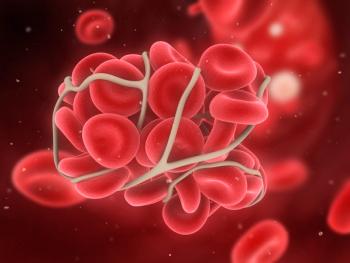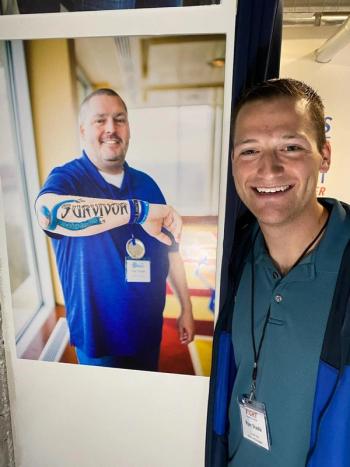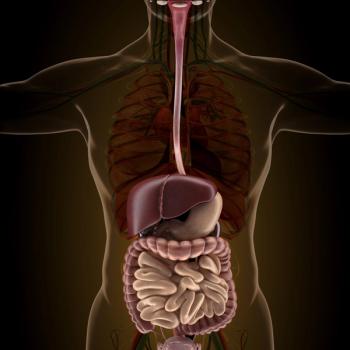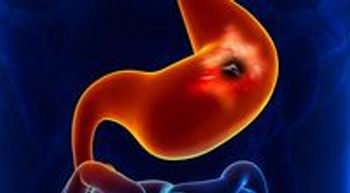
After I was diagnosed with anal cancer, doctors wanted me to get an colostomy bag, but I refused. Later on, I had to voice my concern about a drug that could improve my chances for survival.


After I was diagnosed with anal cancer, doctors wanted me to get an colostomy bag, but I refused. Later on, I had to voice my concern about a drug that could improve my chances for survival.

The Food and Drug Administration approved Imfinzi plus gemcitabine and cisplatin for locally advanced or metastatic biliary tract cancer.

Patients with early-stage rectal cancer may be able to forego major surgery — thus preserving their organs and quality of life — with a pre-surgical chemotherapy regimen, according to recent study results.

Researchers developed an artificial intelligence algorithm to potentially improve the prediction of colon cancer recurrence, which may help patients receive the appropriate treatment.

Many participants enrolled in the CRC-PREVENT trial are from communities often underrepresented in clinical trials due to gender, race and socioeconomic status, among other factors.

The phase 3 MAGNOLIA trial will assess whether abelacimab can prevent venous thromboembolism recurrence in patients with gastrointestinal or genitourinary cancers.

Investigators plan to analyze if treatment with an experimental, CAR-T cell therapy is safe and effective in a small group of patients with relapsed or refractory metastatic colorectal cancer.

A new study will analyze the effect of exercise on chemotherapy tolerability and outcomes in patients with colon cancer.

The researchers hypothesize that treatment with the investigational drug combined with chemoradiotherapy may reduce the need for invasive surgery to remove the rectum and surrounding tissue in this patient population.

After my dad died of colorectal cancer, I knew I had to continue advocacy work in his honor.

The way I saw it was that I could either die from cancer, or from the side effects from the clinical trial. It was a difficult decision to make, but I am glad I chose it.

From “EastEnders” star Samantha Womack announcing her breast cancer diagnosis in a tribute to Olivia Newton-John to a famous fashion designer’s death from liver cancer, here’s what’s happening in the oncology space this week.

A stage 3 colorectal cancer survivor shares her story of being diagnosed right before the COVID-19 pandemic.

Fruquintinib improved survival in patients with advanced colorectal cancer, according to findings from the phase 3 FRESCO-2 trial.

The FDA will allow the study of CYAD-101, a novel CAR-T cell therapy, to continue in patients with metastatic colorectal cancer now that the eligibility criteria for the trial has been amended.


An ongoing clinical trial aims to determine if pre- and post-surgical chemotherapy can improve outcomes for patients with stage 2 and 3 gallbladder cancer.

Treatment with FOLFIRINOX, a combination of several chemotherapy agents, prior to the surgical resection of pancreatic cancer increased survival outcomes when compared to historical data.

The first patient enrolled onto a phase 1 trial has received TCMB07, an investigational drug, for the treatment of cachexia, a severe disorder that may occur in more than half of patients with advanced-stage cancer.

The manufacturer of one of the cancer treatments announced that it is also participating in clinical trials assessing the safety and efficacy of their product in colorectal and endometrial cancer.

The use of a chemotherapy-free, combination regimen as a maintenance treatment option was associated with an improvement in survival in a group of patients with advanced pancreatic cancer.

The FDA granted abelacimab a fast track designation for the treatment of thrombosis, a common and sometimes deadly type of blood clot associated with cancer.

From “General Hospital” star Cameron Mathison discussing his cancer experience to Dame Deborah James and Hells Angels founder Sonny Barger dying of the disease, here’s what happened in the cancer space this week.

Recent clinical trial results have given me new hope that one day soon, a cure for all cancers will be found.

Tafinlar plus Mekinist is now approved by the Food and Drug Administration to treat adults and children over the age of 6 who have BRAF V600-mutant advanced solid cancers.